- Home
- Melody Carlson
River's Song - The Inn at Shining Waters Series Page 4
River's Song - The Inn at Shining Waters Series Read online
Page 4
And for the first time, in a very long time, Anna cried.
4
When Anna awoke, the house was dark and silent and, feeling cold and disoriented, she had to take a moment to remember where she was. Then relief washed over her as she realized that she was home. Really home. Now if she could only remember how to start up the old generator. It had obviously been turned off by the neighbors to save fuel while the house was unoccupied. And although it was late June the air was cold and damp today, not unusual for this region, where the summer could be windy and cool and autumn could be balmy.
Stumbling through the darkness toward where she thought the fireplace lay, she inched her fingers along the mantle until she located the ever-present kerosene lamp and a box of matches. They were always ready for those unexpected moments when the generator would shut down. Soon a warm golden glow illuminated the room, and she soon found several other lanterns, which she lit and placed strategically. She found kindling and wood and before long had a crackling fire burning. Perhaps she wouldn't need any electricity tonight after all.
She stepped back and held her hands over the flickering flames, admiring her handiwork, and then admiring her father's. He'd designed and built this fireplace himself. He had shown her the very spot where he had collected the big smooth stones from a bank up the river, telling how he'd made dozens of trips in his little rowboat until he finally had enough. That was long before Anna, or even Eric Joseph, had been born. Anna knew it had taken them nearly five years to conceive their first child. And then four more after Eric's death to conceive Anna. As a child, she occasionally wondered why she didn't have any other siblings, although Grandma once alluded to some health issues that occurred during Anna's mother's childhood.
Just the same, Anna enjoyed the attention lavished on an only child. The first time she heard the term "only child," it had come from Babette. With Babette's thick French accent, Anna had thought she'd said, "You are a lonely child,"And Anna had answered, "I'm not a lonely child. I have lots of friends, and Grandma Pearl, and Daddy and Mother." And then Babette had laughed the way that only Babette could laugh, deep in her throat until her bosom shook like a small earthquake. But when she regained her composure, she kindly explained to Anna what "only child" meant, and that she had only just learned the term herself.
It wasn't until Anna was about to become a mother herself that her mother explained that the reason they didn't have more children wasn't that they didn't want them, but a result of some "female problems" that prohibited her from conceiving." But we've always been thankful to have you," she told Anna a couple of days before Lauren was born. "And we hope you and Adam give us lots of grandchildren. Nothing makes me happier than to see you happy, dear."
As a result, Anna had always gone to great effort to ensure her parents remained oblivious to her troubled adult life. She sent cheerful letters and photos of Lauren wearing the fancy store-bought clothes her mother-in-law provided. Sheltering her parents from the realities of her miserable existence, she wrote about how Lauren took dance classes and excelled in school and anything she could think of to fill a page and a half of a letter. Sometimes she simply wrote the words larger, taking care to use perfect penmanship, filling the blank space with lovely cursive letters. It seemed the least she could do for them. Her parents had already survived their own troubled childhoods. Besides the hardships her mother had endured, Anna knew that Daddy had been orphaned as a young teen, and that he'd snuck out onto a freighter from Sweden, traveling halfway around the world to make his own way in life. Anna hadn't wanted to push her parents out of her life; she'd simply wanted them to be happy.
Her mother had been so pleased and proud when Anna had caught the eye of the strapping young lumberman who had been tearing up and down the river in a very impressive motorboat. Adam Gunderson, fresh out of college, had been spending time at one of the larger mills along the river. Not as a worker, but as a member of a prosperous Northwest logging family. His uncle owned the mill on the Siuslaw. And his father owned a similar but smaller mill on the other side of the coastal range mountains in Pine Ridge. Adam had come to the coast to observe some of the new technology and machinery his uncle had recently installed in his mill. He'd also spent some time observing and being observed by the local girls.
Barely out of high school, Anna had been helping out at the store and making plans to go to teachers' college in the fall. Of course, Adam had changed all that. First she'd ignored the flirtatious behavior of the handsome young man—imagining him to be a spoiled, rich brat, which wasn't far from the truth. But he seemed to take her standoffishness as a personal challenge and by the Fourth of July he had talked her into going on a picnic and to the fireworks show with him. Naturally, she only agreed to this after he promised to let some of her friends come along as well. It was quite an exciting day and evening and, as Dorothy said, the boy was smitten. And when Adam called Anna his Indian princess a few days later, she was equally smitten.
One thing led to another and by the summer's end they were officially engaged, with a wedding date set for the following June. Adam went back to Pine Ridge to run his family's mill and Anna continued with her plans of continuing education at the teachers' college in Monmouth. Her mother tried to talk her out of this, saying that she should use the year to prepare for the wedding by learning to cook and preparing a trousseau. But Anna imagined herself to be an independent young woman. A fan of Katharine Hepburn and some of the other take-charge sort of popular young actresses of the day, Anna had seen a variety of movies, and she liked to imagine that she too was like that—a capable, confident, modern sort of woman. Going to college seemed the way to prove that.
When Adam showed up on campus shortly before Christmas break, he declared his undying affection to Anna, insisting that he couldn't live another day without her, convincing her that their only solution was elopement. Flattered and excited, not to mention somewhat homesick and thoroughly disenchanted with her lackluster college classes, she agreed. And since they were both of age, he drove them to Reno where they were quickly and quietly married. Anna's parents sounded understanding when she placed the collect call to the store, but she could tell that her mother was disappointed. She had wanted to sew the wedding dress, prepare a trousseau, and host a lovely wedding by the river—all things that Anna would've enjoyed as well. But now she pushed those thoughts from her mind, telling herself that being married to Adam was all that mattered.
"The house isn't much,"Adam told her as they returned from their honeymoon three days before Christmas. "I've been so busy at the mill that I haven't had time to keep it up." He parked his roadster in front of a sweet looking little cottage with cedar shingles and white shutters and flower boxes.
"I love it," she told him as he picked her up into his arms. She laughed as he carried her over the threshold. Of course, once inside the cottage, she realized that it did need some work. But, never mind, she was a hard worker. The next morning, Adam went off to the mill and Anna tied her hair in a bandana and put on a pair of Adam's dungarees, belting them tight to keep them on. She rolled up the sleeves of one of his old flannel shirts and went right to work. Cleaning and scrubbing with an intensity that surprised even her, she intended to make that cottage sparkle and shine before Christmas!
It was mid-afternoon when she opened the front door to throw out what must've been her tenth bucket of blackened mop water when a well-dressed middle-aged woman walked up the brick-paved walk. She had a brown crocodile handbag on her arm and wore shoes that matched it. "Oh, my!"Anna cried, stopping herself from dousing the woman with the filthy water.
"Who are you?" the woman asked with narrowed eyes.
"Excuse me?"Anna set the bucket aside, studying the slightly built fair-haired woman. Her eyes were pale blue and cold.
"Oh, I see." The woman nodded with a relieved expression." Adam must've hired a cleaning woman. Yes, it's about time. That cabin is appalling. I've told my son a pig wouldn't live there."
&n
bsp; "Your son?"Anna wiped her hands on the back of her dirty pants.
"That's right. Adam Gunderson is my son. I am Mrs.Gunderson." The woman turned to leave then stopped abruptly. Turning back around, she wore a curious expression. "You are a cleaning woman, are you not?"
Anna was speechless. Hadn't Adam told his mother about her—about their marriage?
As Mrs. Gunderson came closer, her arched brows drew together and she looked very worried. "Please, answer me, young woman. You do speak English, don't you?"
Suddenly Anna was aware of her Indian heritage. "Yes, of course, I speak English," she said quickly.
"Did my son hire you to clean his house or not?" she demanded.
Anna's heart was pounding so hard, she could feel it in her throat. This was Adam's mother! This woman had no idea that Adam was married! Anna took in a deep breath and made a forced smile. "I'm so sorry to meet you under such awkward circumstances, Mrs. Gunderson."
"Who are you?"
"I am Anna Larson. Actually, that's not quite right, I'm—"
"What are you doing in Adam's house?" she demanded." Did you sleep here?"
Embarrassed, Anna lowered her gaze to the ground. "Adam and I—we were married—about a week ago in Reno."
"You are lying!" she shrieked.
Anna looked back up to see that Mrs. Gunderson's face was even paler than before and she was clutching her chest as if in pain.
"Are you all right?"Anna ran over to help her.
But the woman backed away, holding up her hands as if she thought Anna might hurt her. "Keep your filthy hands off me."
Anna just stared in horror as Mrs. Gunderson turned and hurried over to where a shiny black sedan was parked on the other side of the street. It took her a few moments to get inside and start the car, but once the engine turned over, the car's tires squealed as it roared down the quiet street. Sickened by what had just transpired, all Anna could think was that she wanted to go home. She wanted the familiarity of the river . . .her parents . . . and peace.
Anna stood and walked over to the fireplace, tossing a couple more logs onto the still-red embers. So now she was home with the familiarity she had longed for. Although her parents were gone . . . and that sense of peace felt elusive . . . but at least the river was still here. That never changed.
5
Anna slept soundly that night. She wasn't sure if it was from pure exhaustion, the comfort of the bed, or the lulling sound of the flowing river, but when she awoke, she felt refreshed and ready to face the day. To her delight the clouds were gone and the sun was shining. And when she looked out toward the river, the water glistened and sparkled—just like diamonds—and she felt a rush of excitement that reminded her of childhood.
Unexpectedly hungry, she lit the gas stove and soon had eggs sizzling and coffee perking. She still hadn't turned the generator on to use the electric toaster, but using a fork she toasted a slice of bread over the gas flame. Then she took her breakfast outside and, sitting on the steps of the porch in front of the store, ate it while watching the river. Several fishing boats passed by. One of the people in a boat waved.
She was just going back inside, wanting to get the generator started when she heard a woman's voice calling out to her." Hallo! Hallo!" Knowing by the accent that it must be Babette, Anna set her plate and cup on the porch and then went out to the dock to greet her.
"Hello, neighbor." Anna smiled as she helped her tie the little motorboat. "You're up bright and early this morning."
"Ees such a beautiful day! How can I resist?" Babette handed Anna a paper bag. "I brought you provisions."
"I have coffee in the house,"Anna told her.
"Fantastic!" Babette linked her arm into Anna's. "Ees so good to see you, ma chérie." She reached up and held Anna's chin in her hand. "And you are still beautiful. But your complexion, chérie, you must use care."
"What do you mean?"Anna asked as they went up the stairs.
"You are beautiful now, but you will look like old woman before your time."
Anna laughed as she opened the door to the house. "I'm not sure that I care what I look like."
"Of course, you care!" she scolded. "You are a woman—you must always care."
As Anna poured them each a cup of coffee, Babette carefully removed some delicate pastries from the bag she'd brought. "I made éclairs," she told Anna. "I remember how you loved them as a little girl."
They sat at the small fir kitchen table together, sharing coffee and pastries and the latest river news. Anna was surprised at how good it felt. "This would be absolutely perfect," she said with regret, "if only Mother were here too."
Babette made a sad smile. "Oui."
"I wish I'd come home more. . . ."
"Why did you not?"
Anna thought about this. "Do you want to know the truth?"
Babette's dark brows arched. "Oui, chérie. As your mama would say, the truth, she set you free."
So for the first time Anna told someone what her life had really been like. She started with her first encounter with Adam's mother and her sharp disapproval of Anna. "In retrospect, I almost wish I'd let that slop water go," she confessed.
"Perhaps it would have been better." Babette shook her head." Then she would know she could not walk on you."
"I never knew, before we got married that is, that Adam's mother was vehemently opposed to our marriage. As soon as she'd heard news of our engagement, she had insisted he call the whole thing off."
"Why was that, chérie?"
"I thought it was because she found out I was half Indian, but Adam swore that had nothing to do with it. You know that Adam was her only son and, after being widowed when he was only fourteen, Eunice had come to depend on him to be the man of the family." Anna shook her head. "I don't think that was the best way for a boy to grow up. Besides being spoiled, he became quite stubborn. He was used to getting his way. As a result, it seemed that the more his mother put her foot down on the marriage plans, the more bound and determined Adam became to marry me. Sometimes I wonder if he married me simply to spite his mother."
"But he loved you, Anna. We all could see that."
She nodded. "I suppose you're right. And, truly, we were happy. For a very short while we were very happy. As long as Eunice kept her distance."
"Then, just one year after your marriage, your baby came." Babette smiled. "Your mama, she was so happy. And such a beautiful little girl." She pointed to a framed baby photo of Lauren sitting on a side table. I have photos of her at my house too."
"And I had actually hoped that Lauren's arrival would improve my relationship with my mother-in-law."
"But it did not?"
"It seemed to at first. Eunice would come to visit the baby, always bringing expensive and somewhat useless presents. It was obvious she loved Lauren, and I'm sure Eunice was immensely relieved that she didn't come out looking like me."
"Oh, Anna." Babette shook her finger. "You are a very beautiful woman. Everyone says so."
"Not my mother-in-law. Eunice made it quite clear that she did not like Indians."
"I think that Eunice would not have liked you no matter what you were."
"Maybe so. No matter how hard I tried to please her, I was never good enough. Nothing I did was right in her eyes and she was never afraid to let me know. It was bad enough with Adam still home, but after he went to war, it became worse. She often called me the Squaw Woman—right in front of Lauren too. I asked her to stop, but she would just laugh and tell me not to be so sensitive."
"Sounds like she is the one who needs to be more sensitive." Babette frowned.
"It got so bad that I was ready to bring Lauren back here. I wanted to come home to the river. I decided I would set up housekeeping in Grandma Pearl's little cabin until Adam came home from the war."
"But Adam came home sooner than expected."
"I had already phoned Daddy, saying that I wanted to come home. And I had just started to pack my bags when the telegram arr
ived. Naturally, I was relieved that Adam had not been killed in the line of duty, but was upset that he'd been severely wounded in Normandy. The telegram said he would arrive in Pine Ridge in less than three weeks. It was no time to be running back home to my parents. I needed to stay put, preparing for the arrival of my wounded soldier. I felt guilty for how thankful I was that he was coming home. But I figured I needed him more than the army did. I just didn't realize, not until some time later, that Adam's mind had been more severely injured than his body. Even now, after he's been gone for eight years, it's hard to grasp what the horrors of war did to that man. I doubt that I ever will."
"War is horrible, horrible." Babette frowned. "But I did not know this . . . about Adam's mind being injured. Your mama, she never speak a word."
"Because she didn't know. I never told her. I always referred to his physical injuries, not the mental ones."
"But why, chérie? Your mama, she would understand. She knew of hardships."
"Yes. And if she knew I was unhappy . . . she would be unhappy. And Daddy too."
Babette nodded. "Oh . . . I see."
She told Babette that it was after Adam came home, missing an arm and a piece of his heart, that Anna's campaign to protect her parents from the harsh realities of her own life became intense. "Daddy was determined to go up to Pine Ridge and fetch us. He wanted to bring Lauren and me back to the river to live. He suspected something was very wrong. But I assured him we were fine and that I needed to be there to help Adam recover. Looking back, it might have been best to have come home then." But at the time, she thought if things couldn't get worse, then they could only get better. "And so my letters to my parents were written from a very positive perspective." She smiled. "Oddly enough, I usually felt better after I wrote one."

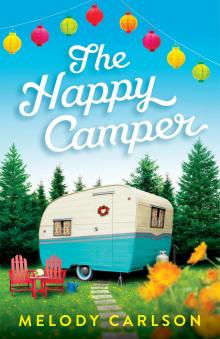 The Happy Camper
The Happy Camper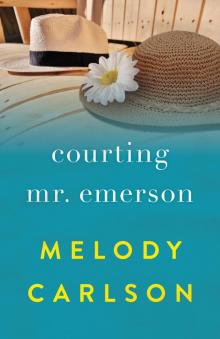 Courting Mr. Emerson
Courting Mr. Emerson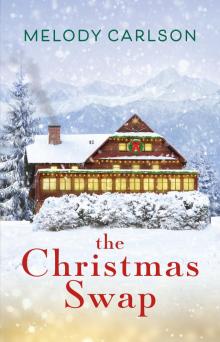 The Christmas Swap
The Christmas Swap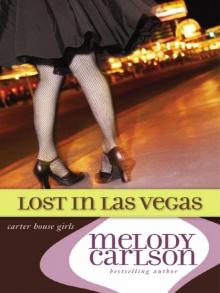 Lost in Las Vegas
Lost in Las Vegas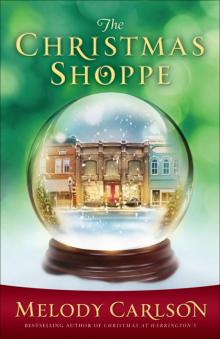 The Christmas Shoppe
The Christmas Shoppe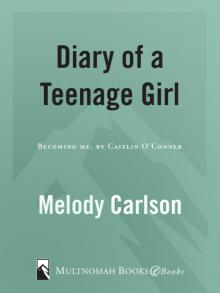 Becoming Me
Becoming Me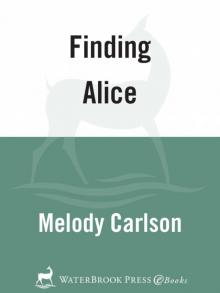 Finding Alice
Finding Alice Payback
Payback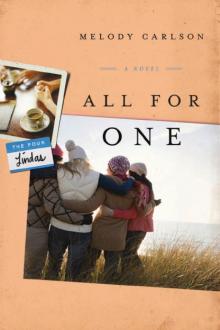 All for One
All for One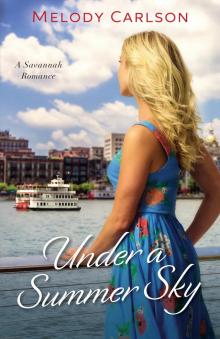 Under a Summer Sky--A Savannah Romance
Under a Summer Sky--A Savannah Romance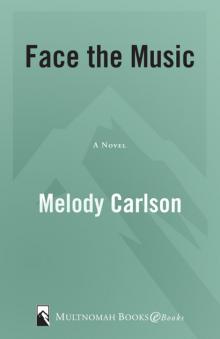 Face the Music
Face the Music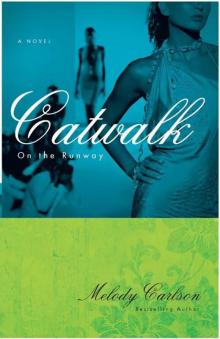 Catwalk
Catwalk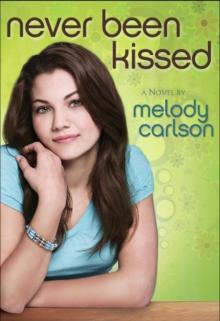 Never Been Kissed
Never Been Kissed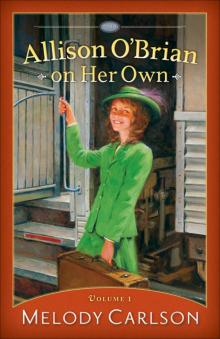 Allison O'Brian on Her Own
Allison O'Brian on Her Own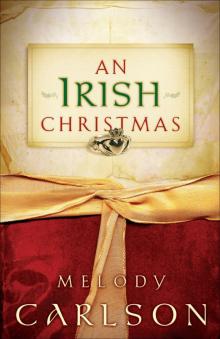 An Irish Christmas
An Irish Christmas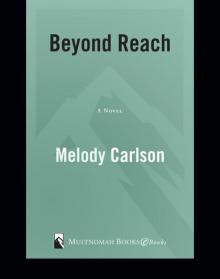 Beyond Reach
Beyond Reach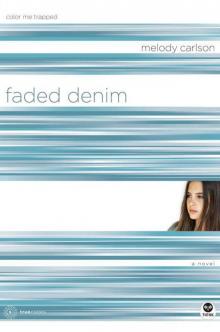 Faded Denim: Color Me Trapped
Faded Denim: Color Me Trapped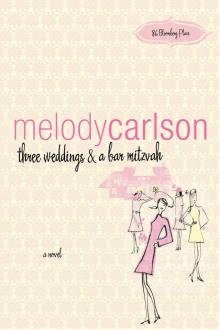 Three Weddings and a Bar Mitzvah
Three Weddings and a Bar Mitzvah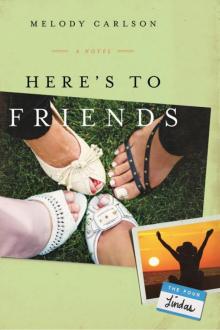 Here's to Friends
Here's to Friends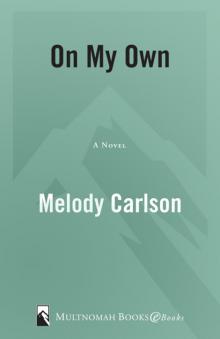 On My Own
On My Own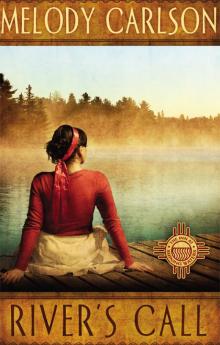 River's Call
River's Call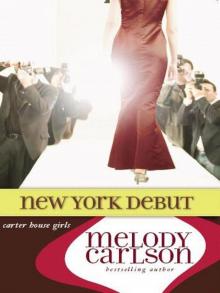 New York Debut
New York Debut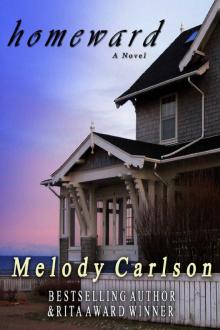 Homeward
Homeward Love Finds You in Sisters, Oregon
Love Finds You in Sisters, Oregon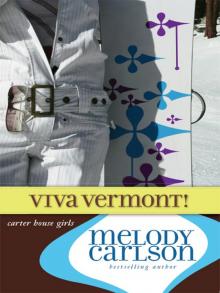 Viva Vermont!
Viva Vermont!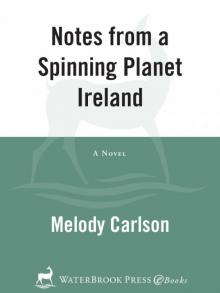 Notes from a Spinning Planet—Ireland
Notes from a Spinning Planet—Ireland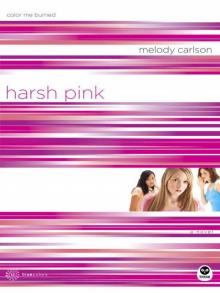 Harsh Pink with Bonus Content
Harsh Pink with Bonus Content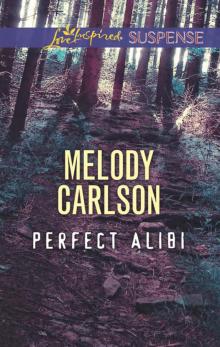 Perfect Alibi
Perfect Alibi The Christmas Pony
The Christmas Pony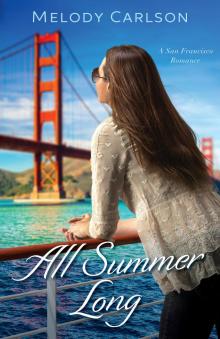 All Summer Long
All Summer Long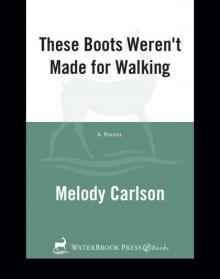 These Boots Weren't Made for Walking
These Boots Weren't Made for Walking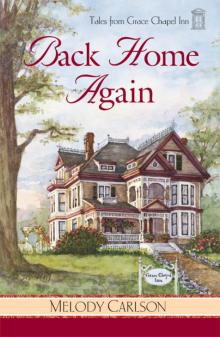 Back Home Again
Back Home Again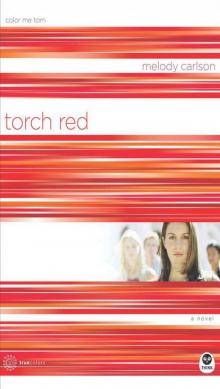 Torch Red: Color Me Torn with Bonus Content
Torch Red: Color Me Torn with Bonus Content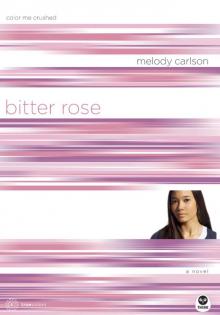 Bitter Rose
Bitter Rose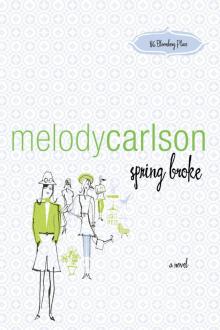 Spring Broke
Spring Broke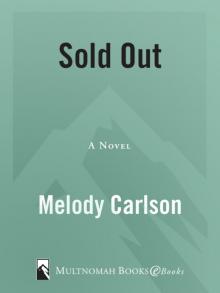 Sold Out
Sold Out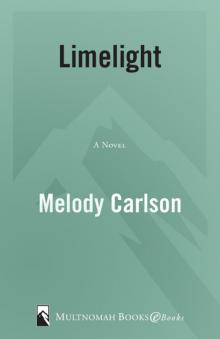 LimeLight
LimeLight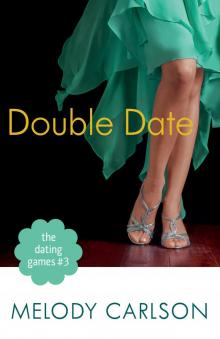 Double Date
Double Date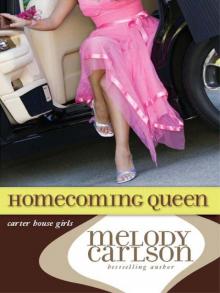 Homecoming Queen
Homecoming Queen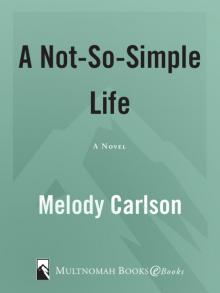 A Not-So-Simple Life
A Not-So-Simple Life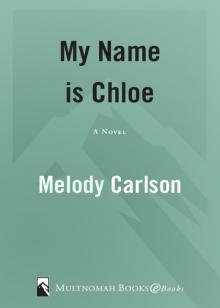 My Name Is Chloe
My Name Is Chloe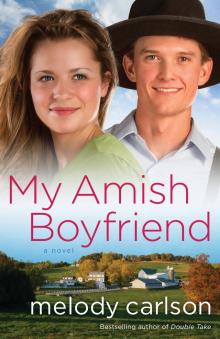 My Amish Boyfriend
My Amish Boyfriend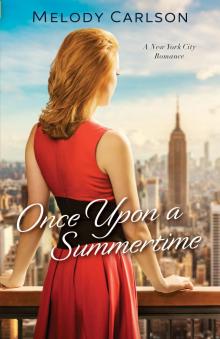 Once Upon a Summertime
Once Upon a Summertime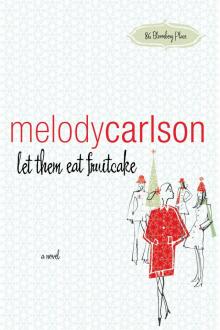 Let Them Eat Fruitcake
Let Them Eat Fruitcake Deep Green: Color Me Jealous with Bonus Content
Deep Green: Color Me Jealous with Bonus Content The Joy of Christmas
The Joy of Christmas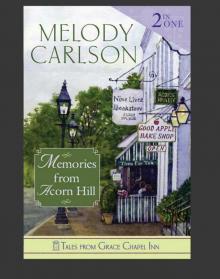 Memories from Acorn Hill
Memories from Acorn Hill Premiere
Premiere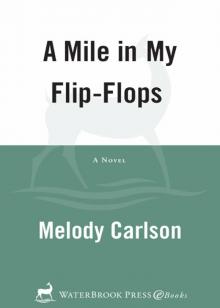 A Mile in My Flip-Flops
A Mile in My Flip-Flops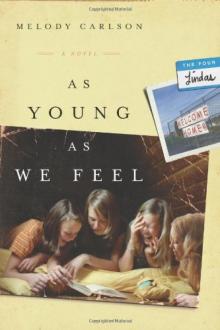 As Young As We Feel
As Young As We Feel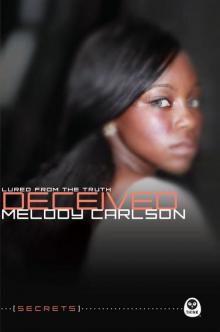 Deceived: Lured from the Truth (Secrets)
Deceived: Lured from the Truth (Secrets)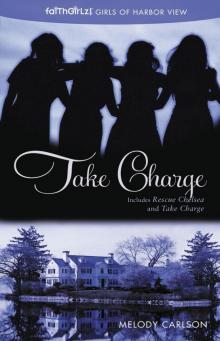 Take Charge
Take Charge Road Trip
Road Trip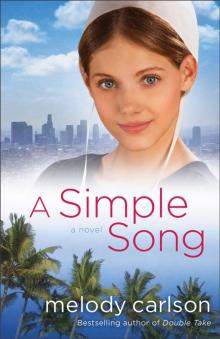 A Simple Song
A Simple Song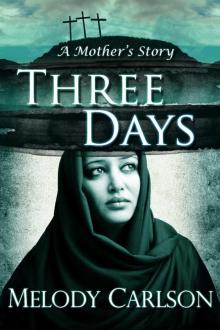 Three Days: A Mother's Story
Three Days: A Mother's Story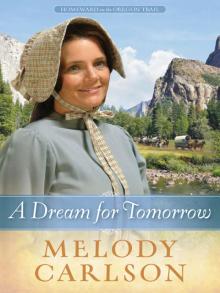 A Dream for Tomorrow
A Dream for Tomorrow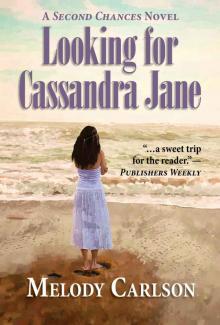 Looking for Cassandra Jane (The Second Chances Novels)
Looking for Cassandra Jane (The Second Chances Novels)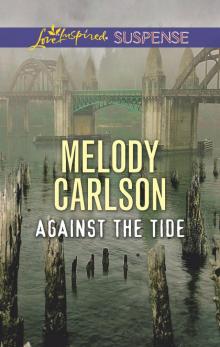 Against the Tide
Against the Tide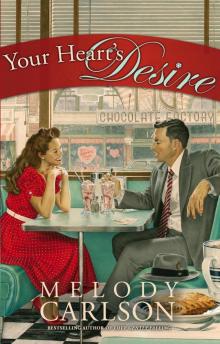 Your Heart's Desire
Your Heart's Desire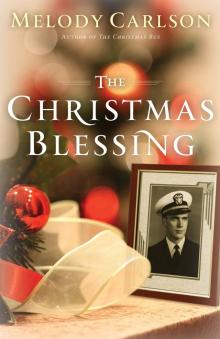 The Christmas Blessing
The Christmas Blessing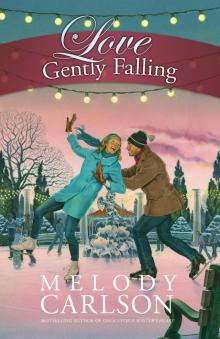 Love Gently Falling
Love Gently Falling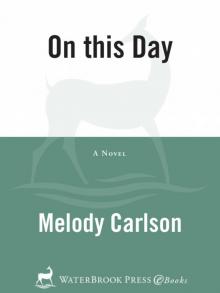 On This Day
On This Day The Christmas Joy Ride
The Christmas Joy Ride Ciao
Ciao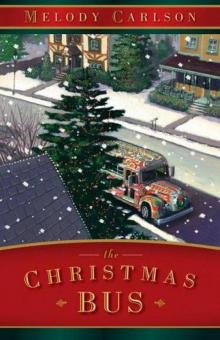 The Christmas Bus
The Christmas Bus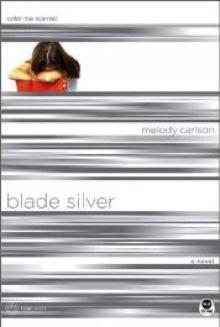 Blade Silver: Color Me Scarred
Blade Silver: Color Me Scarred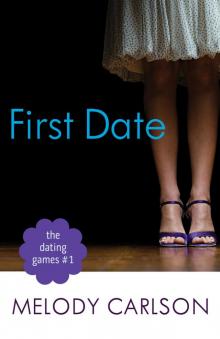 Dating Games #1
Dating Games #1 Double Take
Double Take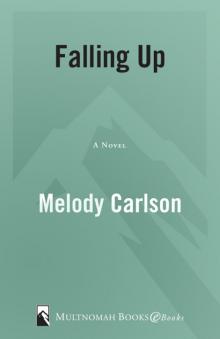 Falling Up
Falling Up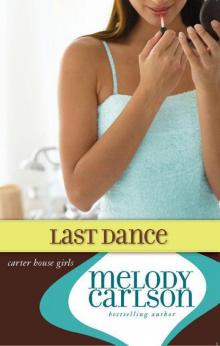 Last Dance
Last Dance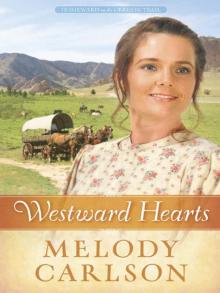 Westward Hearts
Westward Hearts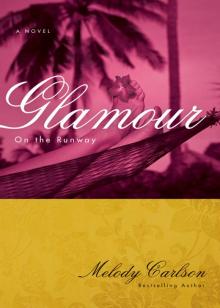 Glamour
Glamour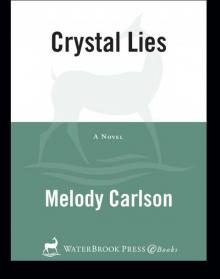 Crystal Lies
Crystal Lies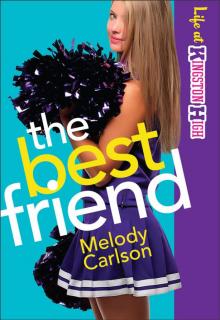 The Best Friend
The Best Friend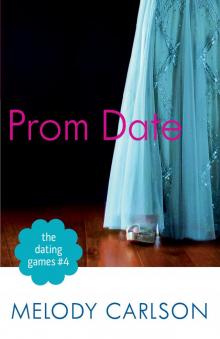 Prom Date
Prom Date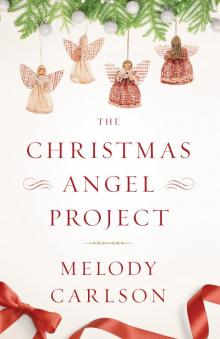 The Christmas Angel Project
The Christmas Angel Project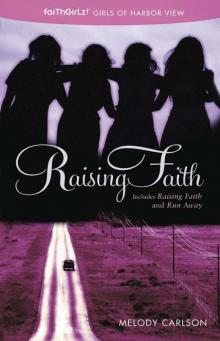 Raising Faith
Raising Faith The 'Naturals: Awakening (Episodes 1-4 -- Season 1) (The 'Naturals: Awakening Season One Boxset)
The 'Naturals: Awakening (Episodes 1-4 -- Season 1) (The 'Naturals: Awakening Season One Boxset)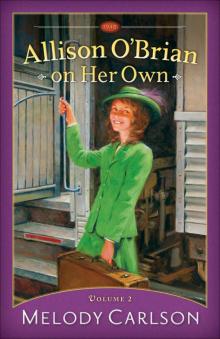 Allison O'Brian on Her Own, Volume 2
Allison O'Brian on Her Own, Volume 2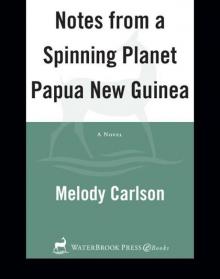 Notes from a Spinning Planet—Papua New Guinea
Notes from a Spinning Planet—Papua New Guinea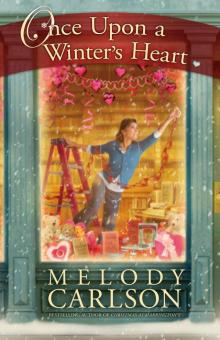 Once Upon a Winter's Heart
Once Upon a Winter's Heart Damaged
Damaged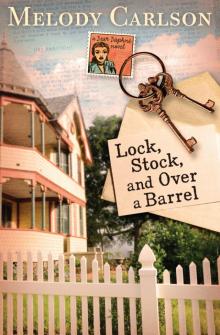 Lock, Stock, and Over a Barrel
Lock, Stock, and Over a Barrel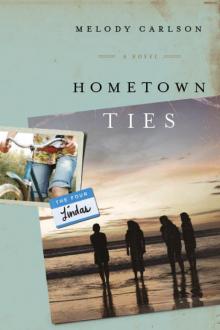 Hometown Ties
Hometown Ties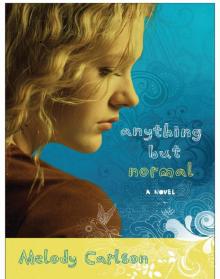 Anything but Normal
Anything but Normal Jerk Magnet, The (Life at Kingston High Book #1)
Jerk Magnet, The (Life at Kingston High Book #1)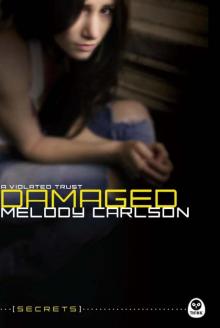 Damaged: A Violated Trust (Secrets)
Damaged: A Violated Trust (Secrets) Fool's Gold
Fool's Gold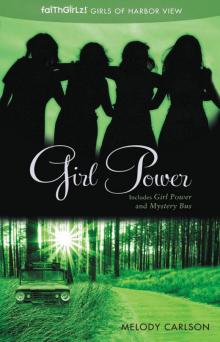 Girl Power
Girl Power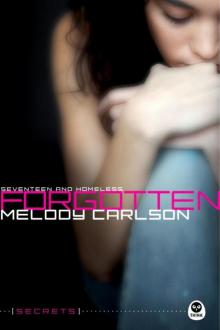 Forgotten: Seventeen and Homeless
Forgotten: Seventeen and Homeless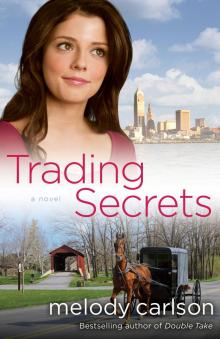 Trading Secrets
Trading Secrets Blood Sisters
Blood Sisters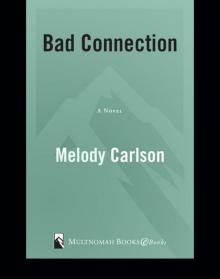 Bad Connection
Bad Connection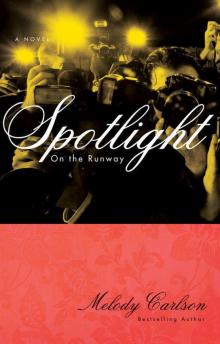 Spotlight
Spotlight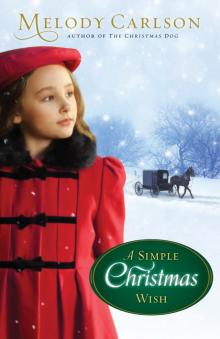 A Simple Christmas Wish
A Simple Christmas Wish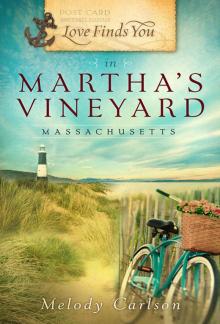 Love Finds You in Martha's Vineyard
Love Finds You in Martha's Vineyard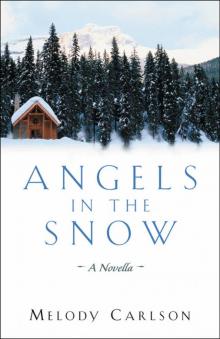 Angels in the Snow
Angels in the Snow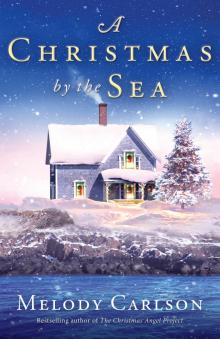 A Christmas by the Sea
A Christmas by the Sea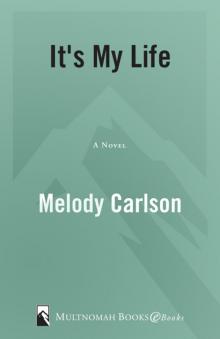 It's My Life
It's My Life Mixed Bags
Mixed Bags The Christmas Dog
The Christmas Dog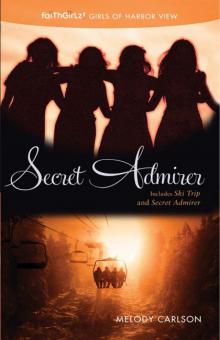 Secret Admirer
Secret Admirer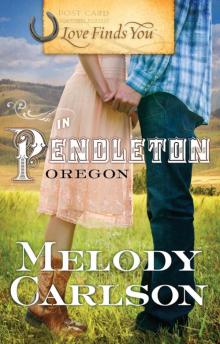 Love Finds You in Pendleton, Oregon
Love Finds You in Pendleton, Oregon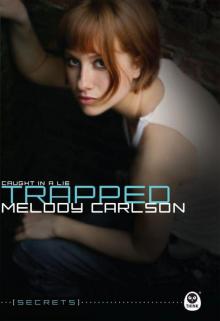 Trapped: Caught in a Lie (Secrets)
Trapped: Caught in a Lie (Secrets)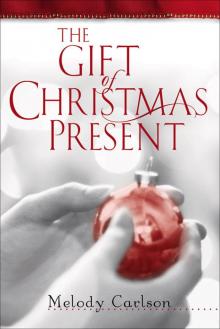 The Gift of Christmas Present
The Gift of Christmas Present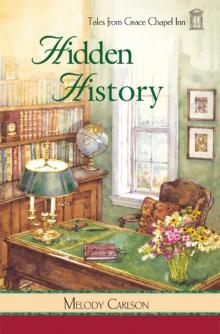 Hidden History
Hidden History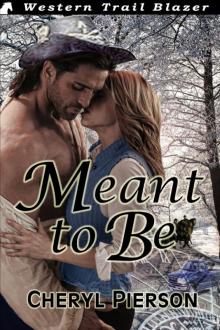 Meant to Be
Meant to Be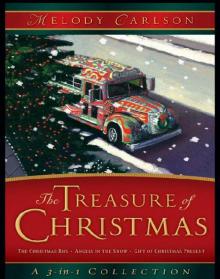 The Treasure of Christmas
The Treasure of Christmas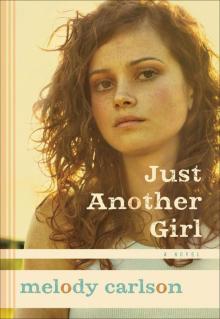 Just Another Girl
Just Another Girl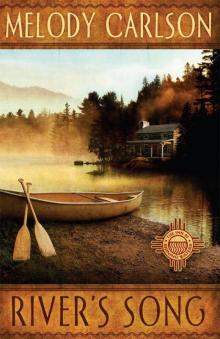 River's Song - The Inn at Shining Waters Series
River's Song - The Inn at Shining Waters Series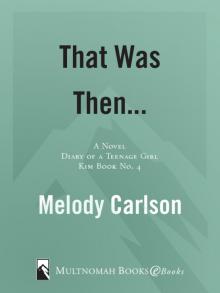 That Was Then...
That Was Then...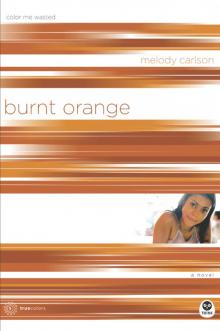 Burnt Orange
Burnt Orange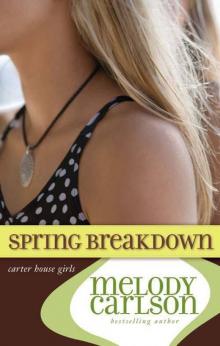 Spring Breakdown
Spring Breakdown The Christmas Cat
The Christmas Cat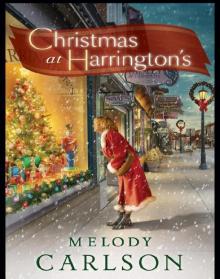 Christmas at Harrington's
Christmas at Harrington's